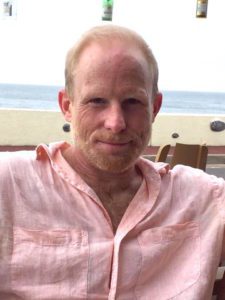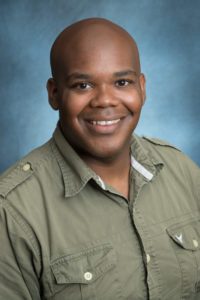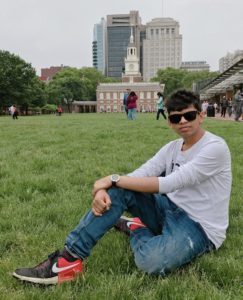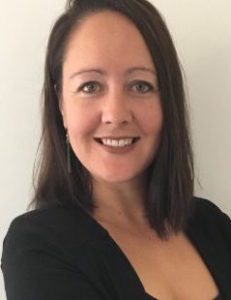Story by Lena Ham. Originally published on SOURCE.
Several members of the College of Liberal Arts recently won awards from the Fulbright Program. Below are descriptions of how some of those awards are being used.
Stephan Weiler
Stephan Weiler was one of about a dozen people selected as a Fulbright Distinguished Research Chair, a subset of the Fulbright Distinguished Chair award. The director of the Regional Economic Development Institute (REDI), Weiler holds the William E. Morgan Endowed Chair as Professor of Economics at CSU.

His current work focuses on regional economic growth and development, particularly in rural and inner-city areas, combining theoretical, empirical, and policy analyses on topics such as information, innovation, industrial restructuring, land use, public/private partnerships, immigration, entrepreneurship, and the environment.
These various elements informed his role as founding research director of the Colorado Innovation Report with a broad-based coalition of leaders from the private, public, and nonprofit sectors to understand and enhance the state’s innovative capacities. Weiler is distilling these three decades of experience into REDI, partnering with the City-Region Economic Development Institute (City-REDI) at the Birmingham Business School in the U.K. to provide fresh, timely and cutting-edge information to enhance economic growth and development prospects for regions across the globe.
This partnership was the basis for his selection as a Fulbright Distinguished Research Chair to further develop the two institutes’ collaborations in 2018-19.
Octavius Jones
Through stories and storytelling, Ethnic Studies Instructor Octavius Jones will use his Fulbright to study how indigenous Maori women in Wellington, New Zealand, understand their environment and what role they play in marine conservation there.

In America, almost 40 percent of the population lives in coastal regions, and globally, eight of the world’s 10 largest cities are on the coast, according to the U.N. Atlas of the Oceans. Greg Stone, a marine biologist and executive vice president of Conservation International, estimates that marine conservation is about 100 years behind terrestrial natural resource management. An important area of growth in marine conservation efforts is the inclusion of race and gender in community-based conservation projects, which seek to work with local indigenous communities on rebuilding vitality into marine ecosystems. New Zealand has been at the forefront in terms of respecting the rights of indigenous peoples like the Maori and engaging with Maori communities on conservation projects.
The inclusion of women in land conservation, as in Wangari Maathai’s Greenbelt Movement, has led to positive changes and greater community involvement in sustainable and culturally appropriate conservation practices for terrestrial ecosystems. Indigenous women use various methods, such as storytelling, to retain traditional ecological knowledge and disseminate those knowledges to future generations.
Jones’ examination and incorporation of African feminist methodologies and practices in his master’s thesis led him to engage knowledge systems understanding such as oral history and storytelling. These feminist approaches have not been widely applied to conservation sciences or community-based natural resource management. The objective of his qualitative research project at the Victoria University of Wellington is to understand how Maori women in communities understand and implement sustainable use of marine resources. He would like to discuss their own indigenous ecological knowledges of marine ecosystems and their strategies and methods of passing these knowledges down to younger generations.
S M Kamrul Hassan
Coming to the U.S. from Bangladesh to pursue higher education was an aim of S M Kamrul Hassan’s life, but having a Fulbright scholarship to pursue this aim was more like a dream for him. After all, the competitive selection process from thousands of applicants made the Fulbright foreign student program a lucrative target for the aspiring young people of Bangladesh to pursue higher education in American universities.

“All the moments that I can remember, starting from the initial application to the final day when the award was officially announced, were full of uncertainty with hope,” he recalls. “It was a hope that stood upon the lifelong dreams of a young man, a hope that was willing to fight until the last breath and a hope that only wanted to smile at the end.”
He says he took a break from all of his other activities during the days he was preparing his application for the Fulbright scholarship. Two weeks after submitting the application, he received an email inviting him to participate in an interview.
“When I faced the interview board, my heart was beating hard,” Hassan says. “But I was able to explain my passion to study in the U.S. and answered all the queries of the board members. When I got the email confirming that I had been selected to receive the scholarship to pursue a master’s in the U.S., I felt like flying in the sky!”
In May, he got final confirmation that he would be studying economics at Colorado State University.
“I was super-excited seeing a dream coming true,” Hassan says. “I really feel like one of the luckiest persons from Bangladesh. I love the Fulbright Program, I love Colorado State University and I love America.”
Annabel Ipsen
Annabel Ipsen, an assistant professor in CSU’s sociology department, is one of four people awarded a postdoctoral Fulbright fellowship to Mexico in 2018-19 as part of the Fulbright Scholar Program.
Ipsen will spend the academic year based at the Universidad Autonoma Metropolitana (UAM-Xochimilco) in Mexico City, conducting research on how high-tech agriculture is regulated in Mexico.
In particular, she is interested in the ways that local government, advocacy organizations, and firms come together to negotiate the shape that regulation takes, and how the law is used to navigate the tension between protecting native corn seed varieties and promoting agricultural development. This study, together with her dissertation research, is part of a book project on globalized agriculture, social movements, and the law.
This is Ipsen’s second Fulbright grant. Previously, she conducted research in Argentina and Uruguay on the citrus industry with a grant from the Fulbright U.S. Student Program. Ipsen will return to Colorado and the sociology department in 2019.
Melissa Derby
Melissa Derby was awarded a Fulbright from Ngā Pae o te Māramatanga, New Zealand’s Māori Centre of Research Excellence funded by the Tertiary Education Commission and hosted by the University of Auckland.

The NPM Graduate Award, presented in partnership with Fulbright New Zealand, is intended to invest in and support indigenous Māori graduate scholarship to create new dynamic international opportunities. The award is granted to promising New Zealand graduate students and provides support for one year of postgraduate study or research at a U.S. institution in the field of Indigenous development. The awards offer life-changing opportunities to gain international experience, advance careers and share Māori worldviews with new friends and colleagues from around the world at their choice of leading American universities.
Derby has a bachelor of arts from Victoria University of Wellington, a master of arts from the Auckland University of Technology and a graduate certificate in indigenous studies from Columbia University in New York. She is currently a Whāia Ngā Pae o te Māramatanga Scholar completing a Ph.D. in education at the University of Canterbury.
During the term of her Fulbright-NPM Award, Derby will be researching critical theories of race, ethnicity and indigeneity in the Department of Ethnic Studies at CSU and at San Diego University in California. She and Rachael Jones, who will complete a master’s degree at Columbia University in New York, were the only recipients of the award.
“Rachael and Melissa are impressive Māori scholars who are at the forefront of intellectual thinking,” said Professor Jacinta Ruru, NPM co-director and Fulbright-NPM alumna. “This is a life-changing opportunity for them to be further inspired, and we’re excited for them. Their work will strongly contribute to our vision of Māori leading Aotearoa New Zealand into the future.”
Penelope Borland, Fulbright New Zealand’s executive director, added, “Fulbright New Zealand is proud to partner with Ngā Pae o te Māramatanga in offering these awards, and we are delighted that they will give Melissa and Rachael a tremendous opportunity to further their work and thinking in the United States. We know that their awards experience will be transformational, and the work both women are doing in Māori law and education will contribute to a better New Zealand.”